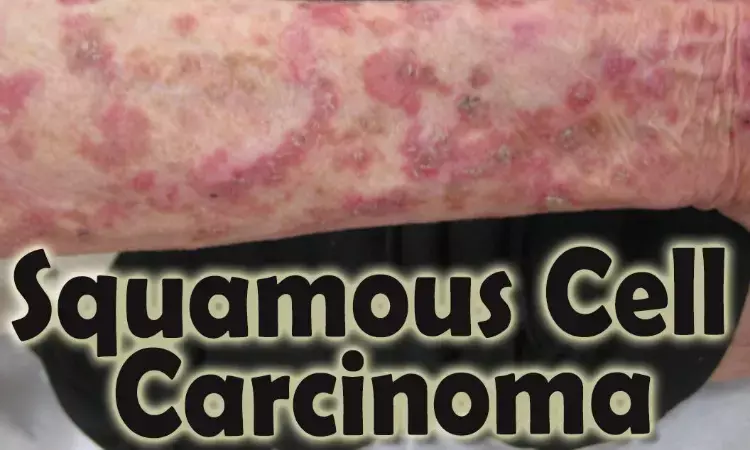- Home
- Medical news & Guidelines
- Anesthesiology
- Cardiology and CTVS
- Critical Care
- Dentistry
- Dermatology
- Diabetes and Endocrinology
- ENT
- Gastroenterology
- Medicine
- Nephrology
- Neurology
- Obstretics-Gynaecology
- Oncology
- Ophthalmology
- Orthopaedics
- Pediatrics-Neonatology
- Psychiatry
- Pulmonology
- Radiology
- Surgery
- Urology
- Laboratory Medicine
- Diet
- Nursing
- Paramedical
- Physiotherapy
- Health news
- Fact Check
- Bone Health Fact Check
- Brain Health Fact Check
- Cancer Related Fact Check
- Child Care Fact Check
- Dental and oral health fact check
- Diabetes and metabolic health fact check
- Diet and Nutrition Fact Check
- Eye and ENT Care Fact Check
- Fitness fact check
- Gut health fact check
- Heart health fact check
- Kidney health fact check
- Medical education fact check
- Men's health fact check
- Respiratory fact check
- Skin and hair care fact check
- Vaccine and Immunization fact check
- Women's health fact check
- AYUSH
- State News
- Andaman and Nicobar Islands
- Andhra Pradesh
- Arunachal Pradesh
- Assam
- Bihar
- Chandigarh
- Chattisgarh
- Dadra and Nagar Haveli
- Daman and Diu
- Delhi
- Goa
- Gujarat
- Haryana
- Himachal Pradesh
- Jammu & Kashmir
- Jharkhand
- Karnataka
- Kerala
- Ladakh
- Lakshadweep
- Madhya Pradesh
- Maharashtra
- Manipur
- Meghalaya
- Mizoram
- Nagaland
- Odisha
- Puducherry
- Punjab
- Rajasthan
- Sikkim
- Tamil Nadu
- Telangana
- Tripura
- Uttar Pradesh
- Uttrakhand
- West Bengal
- Medical Education
- Industry
Multimodality therapy including surgery improves survival in sinonasal squamous cell carcinoma: Study

Recent research has found out that multimodality therapy, including surgical intervention, associates with improved overall survival (OS) after multifactorial adjustments and that induction chemotherapy (IC) followed by surgery associated with improved OS compared to induction chemotherapy (IC), followed by chemoradiation therapy (CRT) and CRT alone.
The study is published in the International Forum of Allergy and Rhinology.
Sinonasal squamous cell carcinoma (SNSCC) is a rare malignancy that poses management challenges. Although surgery and chemoradiation therapy (CRT) remain therapeutic mainstays, induction chemotherapy (IC) has emerged as a useful adjunct with locally advanced disease.
Hence, Nyssa Fox Farrell and colleagues from the Department of Otolaryngology–Head and Neck Surgery, Division of Rhinology and Sinus Surgery, Oregon Health and Science University, Portland, OR used the National Cancer Data Base (NCDB) to examine treatment outcomes for patients diagnosed with SNSCC.
The NCDB was queried for cases with SNSCC. Multivariate hazard regression modeling was used to identify significant predictors of 24-month and 60-month overall survival (OS) including treatment modality.
The following findings were seen-
- A total of 3516 patients with SNSCC met inclusion criteria, including 1750 patients (49.8%) treated with surgery ± adjuvant therapy, 1352 (38.5%) treated with definitive radiotherapy (RT) or CRT, 300 (8.5%) who underwent IC followed by definitive CRT, and 114 (3.2%) who received IC followed by surgery and adjuvant therapy.
- Hazard modeling for confirmed treatment modality significantly associated (p < 0.001) with OS after adjustment.
- Patients who received surgical intervention ± adjuvant therapy had lower 24-month and 60-month mortality risk compared to definitive RT or CRT (hazard ratio [HR] ≥ 1.97; p < 0.001) or IC followed by definitive CRT (HR ≥ 1.73; p < 0.001).
- Compared to primary surgery ± adjuvant therapy, patients undergoing IC then surgery had similar 24-month and 60-month OS (p ≥ 0.672) after adjustment.
Therefore, the authors concluded that "multimodality therapy, including surgical intervention, associates with improved OS after multifactorial adjustments. IC followed by surgery associated with improved OS compared to IC, followed by CRT and CRT alone. Study results highlight the utility of surgery toward optimizing OS in patients with SNSCC and demonstrates the potential utility of IC when primary surgical management is not preferred."
Dr. Nandita Mohan is a practicing pediatric dentist with more than 5 years of clinical work experience. Along with this, she is equally interested in keeping herself up to date about the latest developments in the field of medicine and dentistry which is the driving force for her to be in association with Medical Dialogues. She also has her name attached with many publications; both national and international. She has pursued her BDS from Rajiv Gandhi University of Health Sciences, Bangalore and later went to enter her dream specialty (MDS) in the Department of Pedodontics and Preventive Dentistry from Pt. B.D. Sharma University of Health Sciences. Through all the years of experience, her core interest in learning something new has never stopped. She can be contacted at editorial@medicaldialogues.in. Contact no. 011-43720751
Dr Kamal Kant Kohli-MBBS, DTCD- a chest specialist with more than 30 years of practice and a flair for writing clinical articles, Dr Kamal Kant Kohli joined Medical Dialogues as a Chief Editor of Medical News. Besides writing articles, as an editor, he proofreads and verifies all the medical content published on Medical Dialogues including those coming from journals, studies,medical conferences,guidelines etc. Email: drkohli@medicaldialogues.in. Contact no. 011-43720751


